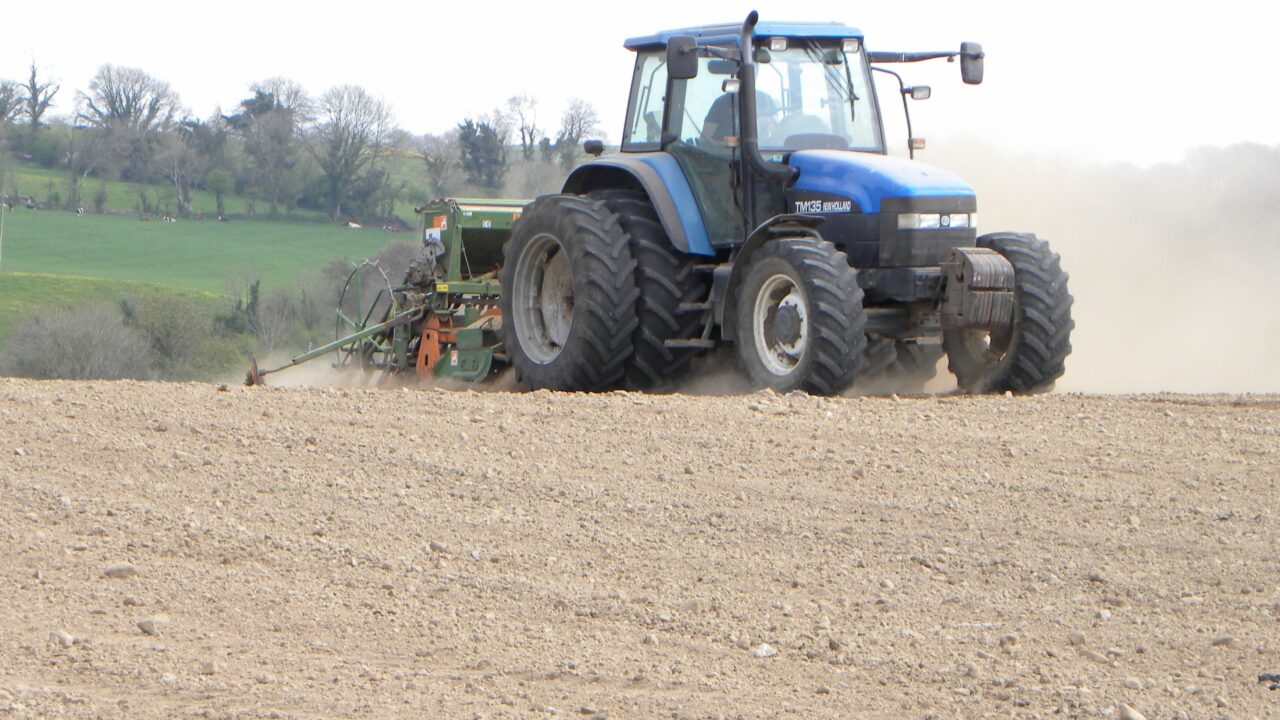Falling numbers of tillage farmers in Ireland, alongside a reduction in the amount of farmland being used in the tillage sector, will be a “double whammy” in the fight against climate change.
This was one of the key messages delivered by Sinn Fein’s agriculture spokesperson, Martin Kenny, as the Joint Committee on Agriculture, Food and the Marine published a report on the ‘Future of the Tillage Sector in Ireland’ this morning.
The lengthy report was compiled after the committee carried out a number of consultation meetings with various stakeholders earlier this year.
According to the report, the tillage sector in Ireland is reasonably small – falling beneath 300,000ha in recent years. Currently, this represents some 9% of the area farmed nationwide. At the moment, there is a total of 7,387 tillage farms in Ireland.
The tillage area has decreased by 14.3% in the last five years and has contracted at a rate of 3%/annum for the past four years, the report added.
An obvious current trend, Kenny outlined, is that land previously used for tillage has gone into dairying in recent years.
That will result in a huge problem for our greenhouse gas emissions into the future. It will be a double whammy, because we will be going into a part of farming that gets the most blame for greenhouse gases; while also abandoning the part of farming which has the most benefit on our emissions.
“The only thing that will keep farmers growing grain, is if they get an adequate price. A portion of that price will come from supports; but, at the end of the day, the portion that comes from price per tonne is really what will make the difference,” Kenny said.
‘We need to value our tillage sector’
Speaking to AgriLand following the launch of the report, Fianna Fail’s agriculture spokesperson, Charlie McConalogue, explained the need to value the tillage sector in Ireland as “part of our agricultural economy”.
Tillage is a very carbon-friendly use of land; if people continue to get out of it then it is going to be replaced by other types of farming – meaning our agricultural carbon footprint would increase.
“That would work against our overall objective; as well as trying to meet our climate change targets. There is a real rationale there at government level – particularly with the Department of Communications, Climate Action and the Environment – to look at how we can prioritise and incentivise continued tillage production and arable farming in the country.
“We know the sector is under pressure; there isn’t a magic bullet at the moment. But, that’s part of the reason why the agriculture committee took the time to hear submissions from people within the sector and to produce this report. We want to try and look at what can be done to protect the people in it,” he said.
Deputy McConalogue believes “now is the time to act” to maintain current numbers in the sector; as it would be very difficult to lure them back if they decide to leave.
“It has been four or five years since we’ve had a decent year of prices for the tillage sector. Year-on-year, we are seeing more people get out of tillage.
Unless we can find some way of arresting that, the downward trend will continue. That’s why it is important that we look at it and explore what options are available.
Extreme weather conditions
Commenting on the challenges posed by extreme weather conditions, the Donegal TD said: “The last couple of years have been particularly poor. If that trend continues; and if climate change is the driver behind it – as opposed to [farmers] being a little bit unlucky – then I would have questions about the viability of the tillage sector.
“You have to be able to get a reasonable harvest period and setting period. We do know that climate change is a factor and that temperatures are increasing a bit; however, I would suspect that the last couple of years have been out of the ordinary rather than attributable to that.
“Across other sectors, we do need to look at a fund in the Common Agricultural Policy (CAP) programme that would actually enable prompt responses to weather-related crises to assist farmers. It is something that is a feature of agriculture and it is something that the government hasn’t dealt with well,” he concluded.
